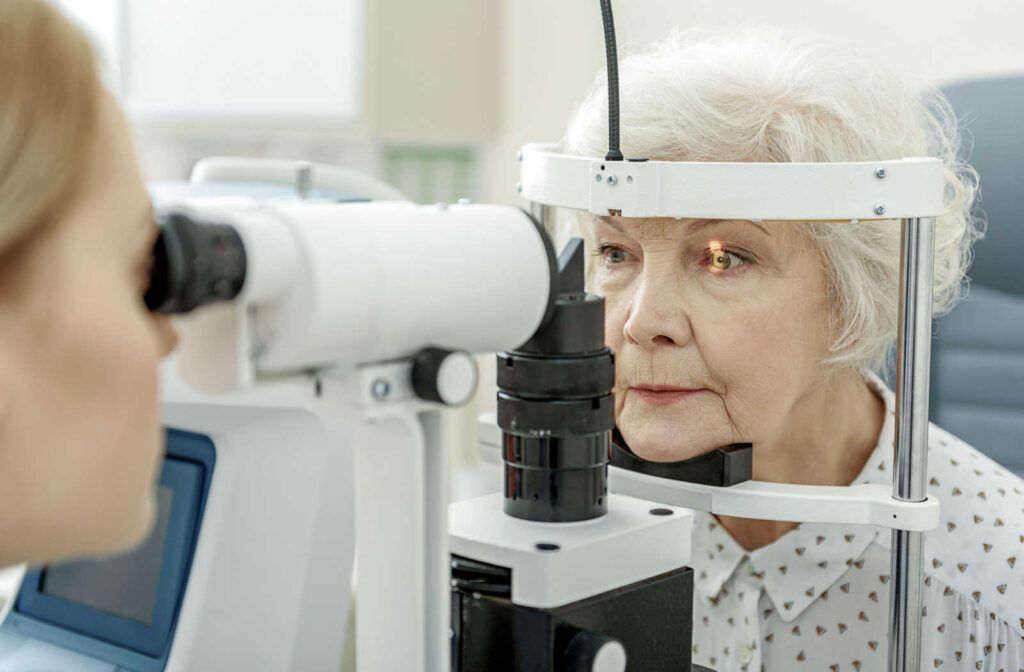A routine physical at your doctor’s office checks your physical health. Similarly, eye exams by your eye doctor assess your eye health and ensure you have the correct prescription for eyeglasses or contact lenses.
Eye exams can detect a wide range of vision problems and eye diseases, some of which may have no obvious symptoms. Scheduling time for eye health examinations in Stoney Creek is as essential as physical examinations. But how long does an eye exam take?
An eye exam can take anywhere from 30 minutes to an hour or more, depending on the type of exam and tests performed.
Why Are Eye Exams Important?
Eye exams can detect common eye conditions and diseases in their early stages to help prevent them from worsening and protect your vision. These can include refractive errors and other conditions such as cataracts, glaucoma, and macular degeneration.
Your eye doctor will also check for signs of health problems, such as diabetes, high blood pressure and high cholesterol that can affect your eyes.
A comprehensive adult and senior eye exam can include various tests based on an individual’s history, symptoms, and risk of developing eye diseases:
- Visual acuity: Measures each eye’s ability to see at varying distances, individually and together, with and without corrective lenses.
- Refraction test: Diagnosis of the refractive status or prescription.
- Binocular vision test: Assesses eye coordination, depth perception, and eye movements.
- Colour vision
- Assessment of visual system: Peripheral vision, ocular mobility, and pupil reactions.
- Retinal exam: A dilated exam is performed to check for any diseases of the back of the eye including cataracts, glaucoma, macular degeneration, retinal holes, tears and many more.
Your eye doctor may conduct additional testing based on your results or discuss a treatment plan for vision problems.

Advanced Technology for Exceptional Eye Care
- OCT Optical Coherence Tomography: OCT is a painless highly advanced device that checks for glaucoma, macular degeneration, diabetes, vitreous detachments and more. OCT allows the doctor to detect even the most subtle changes to your retina, optic nerve and cornea resulting in early diagnosis of eye diseases.
- Corneal topography: A corneal topographer maps the surface curvature of your cornea to determine your corneal health and is a device used for myopia management.
- Optomap: Takes an ultra-widefield retinal image which facilitates early protection from vision impairment or blindness. It aids with early detection of life-threatening diseases like cancer, stroke, and cardiovascular disease. The unique optomap ultra-widefield view helps your eye doctor detect early signs of retinal disease more effectively and efficiently than with traditional eye exams.
- Meibography: Takes HD infrared images of the oil producing glands of the eye (Meibomian Glands). This allows for earlier detection of any blocked or damaged meibomian glands, so the doctor can better diagnose and manage your dry eye symptoms.
- Radiofrequency: TempSure Envi gentle heat therapy is the most current and effective treatment option for all stages of Meibomian Gland Dysfunction(MGD). Tempsure technology delivers heat deeper and more effectively to clogged meibomian glands compared with warm compresses, relieving dry eye symptoms faster and more effectively than traditional methods.
How to Prepare for an Eye Exam?
Typically your eye doctor will discuss your health, medical history, lifestyle, and preferences before your eye exam. You don’t need to prepare for an eye exam, but here are some points to remember:
- Make a list of any symptoms or concerns you have about your vision. It can help the eye doctor understand what to look for during the exam.
- Bring your current glasses or contact lenses to the appointment, which helps your eye doctor determine if any changes are needed.
- If you wear contact lenses, it’s best to avoid wearing them at your appointment.
- Write down any medications you are currently taking.
- Bring a list of any allergies or past eye conditions.
- Bring a pair of sunglasses for wearing after dilation, as your eyes can be more sensitive.
The optometrists at Spectrum Eye Care are happy to answer any questions or concerns when you book your upcoming eye exam.
